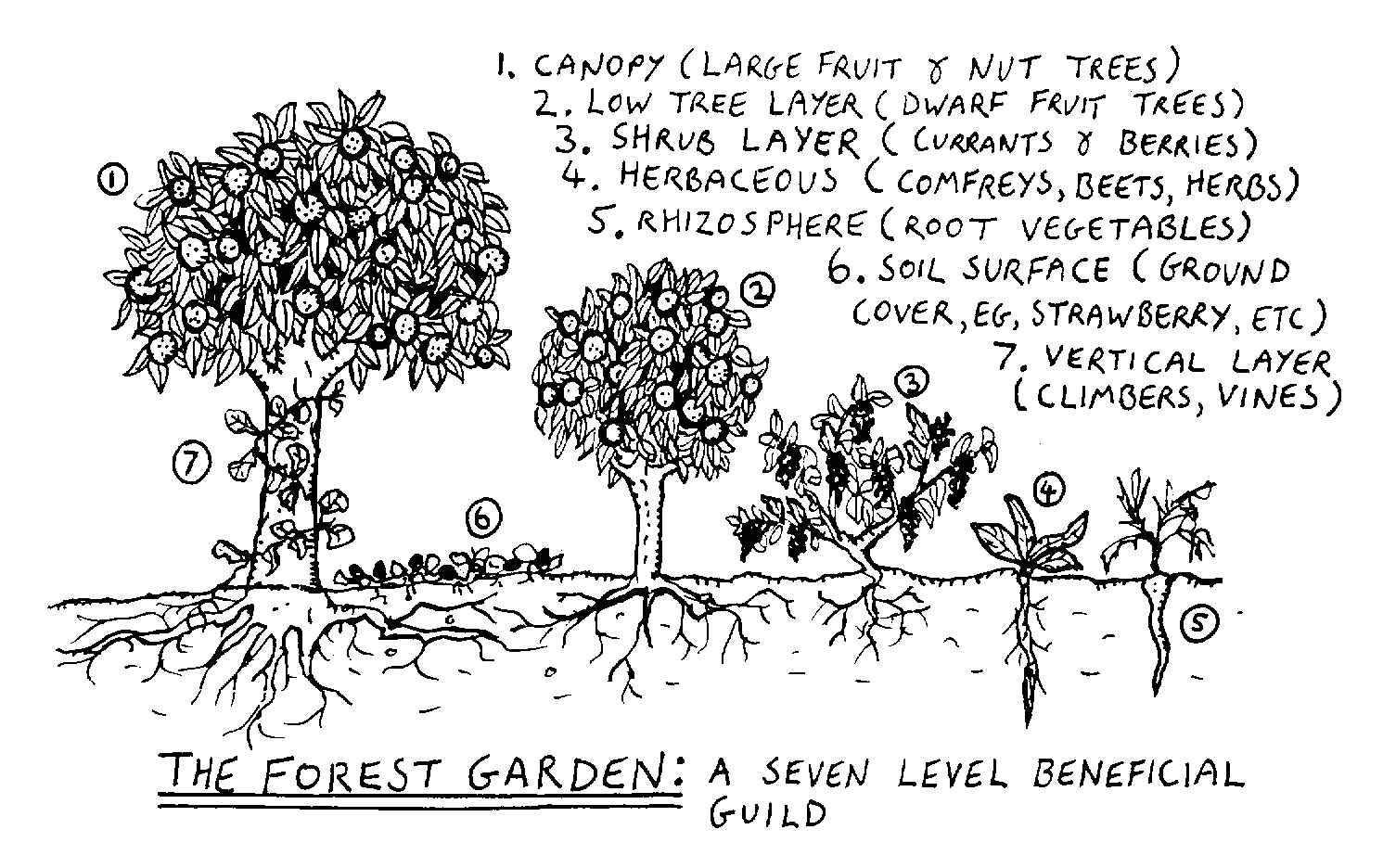 If I was going to pick the capital of fresh, plausible economic ideas, I would not pick Seattle and I fear its residents are on a quest to cement that position.
If I was going to pick the capital of fresh, plausible economic ideas, I would not pick Seattle and I fear its residents are on a quest to cement that position.
Local groups are spending six figures on the Beacon Food Forest. A food forest is a sort of garden. They are usually private, but in this case the public is supposed to walk in and gather free food, from pears to blueberries, right off the plant.
The obvious question is, how will they deal with the tragedy of the commons? According to NPR, their solution is wishful thinking.
Of course, any "free" food source begs the question of what to do with overzealous pickers. No definitive answer on how to handle that predicament has been established yet, though. According to Herlihy, the only solutions right now are to produce an abundance of fruit so there's enough for everyone and to embed "thieves' gardens" with extra plants in the park for those people eager to take more than their share.Seattle has a population of about 609,000 people. This project is going to be on seven acres of land. There's going to be a supply issue, and I somehow doubt the locavores are willing to use genetically-modified plants or chemical fertilizers to increase the yield.
The major problem here is very simple. These groups are attempting to use public and private money to create a public good for everyone to enjoy. Public goods can be very helpful to society, but they always follow two basic characteristics: They must be non-excludable and non-rivalrous.
The Beacon Food Forest will not be excludable. Anyone can walk in and use it any time they want. This is how public projects are supposed to work.
However, eating food is always rivalrous, that is, when some people use it, other people can't. You can't have rivalrous items as public goods, there's no way around it.
You don't have to know the textbook definition of these terms to see how poorly this will end. Volunteers will need to tend the crops, and any tourist can take them away. They could always put up gates and limit who comes in, which would require ongoing labor and radically change the nature of the project, but there's no way to make food non-rivalrous. This is a real problem that needs to be addressed, and it doesn't look like they're taking it seriously.
There is, however, one possible solution that could tone down the problem. Following Elinor Ostrom's work on how informal groups can enforce property rights with social pressures, it's possible that Seattle will develop some kind of public shaming system to punish pilferers.
Here's my idea: Post signs saying the forest garden is public property and by entering you consent to being filmed and photographed. Establish a photo blog that captures everyone who leaves with food, as well as everyone who contributes work to the area, and let readers spot those who frequently take and never give.
Even if they do stumble across a systematic shaming technique, this still doesn't address the issue that food grows slowly and people eat often. Expect to see a lot of bare branches and trampled bushes once this thing gets going. I think there will be such a rush to take food before someone else does that a lot of people will end up eating unripened plants. I don't know if enthusiasm for the project can be sustained enough to get volunteers to maintain the place, but the biggest problem will always be volume. There's no way the supply will keep up with the demand.
First, I also think that this looks just like the Titanic's maiden voyage with the notable exception that the passengers should be able to see the iceberg from Liverpool.
ReplyDeleteSecond, is public shame still a thing? I'm not so sure.
Third, I know what you mean by free, free monetarily, not free from all costs. Here is my prediction though: The opportunity cost will quickly become so high that only a few will still go. I mean that a few will fuck it up so thoroughly, that no one else will bother going, like a playground frequented by the local bullies, all the good kids will just walk around it and play with cardboard boxes instead.
One way to address the tragedy of the commons would be for one person, or group, to harvest the food and then sell it. They could use some of the money to protect the food from over-grazing. The issue here of course is, how would this group prevent others from doing the same, or prevent individuals from taking the food and free ride off the efforts of the group. However, the problem with this is that it would conflict with the idea that the food should free and available to everyone. If this type of arrangement does develop, I wonder what types of actions will be taken by the local authorities.
ReplyDeleteUnfortunately, with more than 600,000 people, I think it is highly unlikely that informal property rights will be able to prevent an over-grazing problem. That being said, I think that it will be very interesting to see what actually happens.
I'm taking all my cows and letting them live there.
ReplyDeleteLook! I found a video about this! I wonder what will happen...
http://www.youtube.com/watch?v=b6KrM-HVHxc&feature=results_main&playnext=1&list=PL1AC6389A91201596